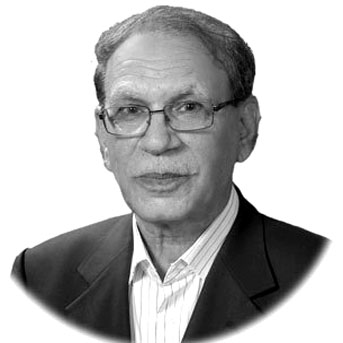Mohammad Jamil
SINCE 1950s, political parties and their leaders remained absorbed in politics of power and pelf, and never tried to establish paradigm of good governance. 1958 Martial Law was a case in point, and the rest is history. In his speeches former Prime Minister Nawaz Sharif has been saying that none of the Prime Ministers could complete his term due to Establishment and Judiciary’s alliance, conveniently forgetting that more than once he had been instrumental in their ousters. In the “lost decade” of 1990s, the nation had witnessed intrigues to get rid of the elected governments. After 2008 elections, PPP formed the coalition government with the PML-N, but the latter withdrew within months. In 2013 PML-N had comfortable majority, and formed the government in the centre. At the time of sit-in by PTI and PAT, PML-N leaders asserted that a few thousands agitators could not override the millions mandate.
But now the PPP, PML-N and other parties that opposed PTI and PAT sit-in, joined the Maulana Fazlur Rehman’s long march, but so far they do not intend to join sit-in in Islamabad. Politicians in the past ganged up to enact a law or pass a constitutional amendment self-servingly and claimed they had strengthened democracy; and that they have shut the door on any praetorian adventurism. Due to their flawed policies and ineptness, they had brought the resourceful country to the present pass; and it never occurred to them that the people were suffering because of their loot and plunder. They wouldn’t even know that at these times there are homes after homes where for months the families have not cooked a dish of vegetables; the prices of pulses are also beyond their reach; and it is difficult for the teeming millions to keep their body and soul together.
Unfortunately, Pakistan’s history has been characterized by periods of military dictators and civilian dictators, as Pakistan has overwhelmingly remained a feudal society where jagirdars, vederas, sardars and pirs still wield enormous powers. They enjoy political clout and in cahoots with noveau riche industrial class and bureaucracy control the state. Whenever there is military dispensation, they join the bandwagon, as they are master political strategists, who ride the tide and turn the surge to their advantage. But the hearts of patriotic Pakistanis bleed to find the nation divided on various planes destroying the very fabric of national cohesion. Yet they claim to be champions of democracy. Can anybody on the political scene at the present claim that he had not compromised with the military dictator at one time or another? It is hoping against hope that they will wean away from giving overriding consideration to their personal interest over national interest.
Showing utter disregard to the people’s needs and demands, our political ‘eminences’ and leading lights talk about democracy, justice, rule of law and constitutionalism. Today, the members of the ruling elite control all the resources of the country; they can afford to ‘invest’ in elections first to reach the corridors of power to amass wealth. And then again launch lavish election campaign to save that ill-gotten wealth. On the other hand, an ordinary person with middle-class background cannot afford to field himself as a candidate for a provincial or national assembly seat. Anyhow, the people are losing faith in the system, which does not address their problems. They seem to be fed up with the present electoral process that sends opulent classes in the assemblies. Unless this vast majority of disgruntled citizens are inspired to take interest in national affairs, no change can be brought about in either state of society or in the contours of the national uplift.
In this system, it is only the oligarchy that would come again and again, no matter what method of elections is adopted. In the ultimate analysis, it means that drastic land reforms and equitable redistribution of ownership of national wealth and means of production are fundamental to any just system. Without this dispensation, any talk of electoral reforms is just meaningless. But neither land reforms nor any kind of egalitarianism are in the plans of any of our oligarchs. They have been scrambling zestfully for amendment to the constitution but what they did was to make a disqualified prime minister as head of the PML-N. In Pakistan, the myriad political and religious parties, intellectuals, pseudo-intellectuals or government and the opposition parties have variegated stances and perceptions about various issues, but they stand united so far as their own perks and privileges are concerned.
There is a consensus among serious politicians, economists and analysts that Pakistan is facing a multifaceted crisis, and it is the result of ruling elite’s lust for power and flawed decisions over a period of seven decades. The fact of the matter is that the landed gentry wield power over the haris. Similarly, in a capitalist society, direct access to private property in the form of the means of production entails control over circumstances in which others are implicated, and therefore have direct social power. Furthermore, the owners of property can borrow by hypothecating the assets and generate more means of production, thus enhancing their power over others. So far as elimination of corruption is concerned, members in the existing assembly would not legislate to indict and punish those who have stashed wealth abroad, and stop them from amassing wealth through illegal means.
—The writer is a senior journalist based in Lahore.









